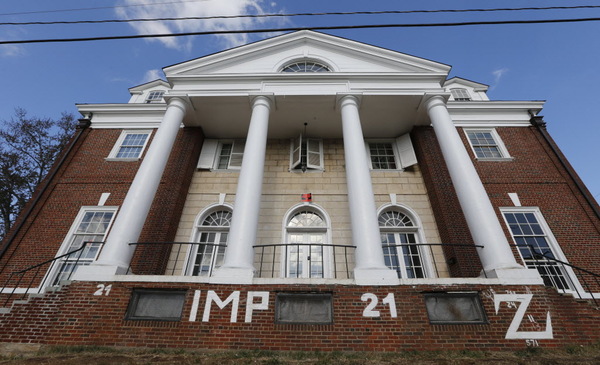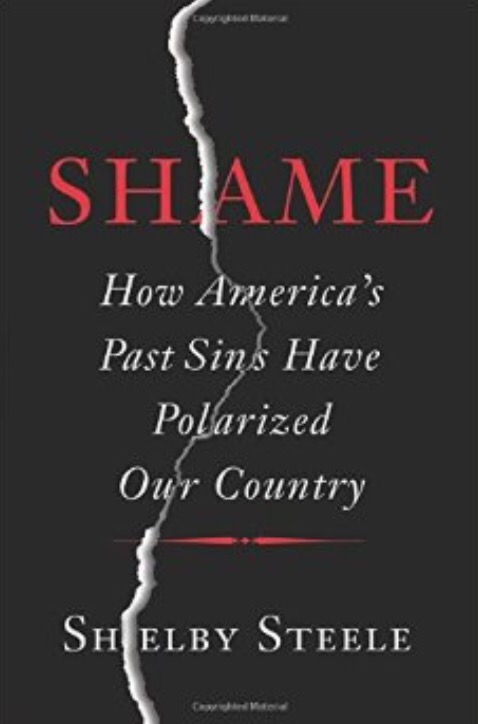Autobiography In Five Short Chapters
Chapter I
I walk down the street.
There is a deep hole in the sidewalk.
I fall in.
I am lost… I am hopeless.
It isn’t my fault.
It takes forever to find a way out.
Chapter II
I walk down the same street.
There is a deep hole in the sidewalk.
I pretend I don’t see it.
I fall in again.
I can’t believe I am in this same place.
But it isn’t my fault.
It still takes a long time to get out.
Chapter III
I walk down the same street.
There is a deep hole in the sidewalk.
I see it there.
I still fall in… it’s a habit… but,
my eyes are open.
I know where I am.
It is my fault.
I get out immediately.
Chapter IV
I walk down the same street.
There is a deep hole in the sidewalk.
I walk around it.
Chapter V
I walk down another street.
– Portia Nelson
Fight Fire With Fire

There is no such thing as a “safe space.” Trigger warnings are a joke. There is no Titile IX when you step off of campus. Micro-aggressions are a part of life as a human being. 738 genders are as ridiculous as it sounds.
Like I’ve been saying for years, this nonsense going on in college campuses must be stopped. It has gotten way out of control and I’m so happy to see people pushing back using the same tactics used against them.
I know it certainly worked for me in the family court system. There are times when you have to fight fire with fire. Pushing back against these campus thugs is something that needed to be done for a while.
An excerpt from this: http://www.theatlantic.com/politics/archive/2016/04/a-protest-against-the-protesters-at-uc-davis/479256/
At UC Davis, where student activists still hope to oust Chancellor Linda Katehi, critics of their activism are using concepts like “safe space” and “hostile climate” to attack it.
The student activists had occupied a small room outside Katehi’s office, planning to stay until their chancellor resigned or was removed from her post. By the time they left 36 days later, a petition that now bears roughly 100 signatures of UC Davis students and staff were demanding that they prematurely end their occupation, criticizing their tactics, and alleging a number of grave transgressions: The signatories accused the student activists of sexism, racism, bullying, abuse, and harassment, complaining that many who used the administration building “no longer feel safe.” The student activists say that those charges are unfair.
The conflict illustrates a pattern that campus observers are likely see more and more in coming years: Insofar as progressives succeed in remaking campuses into places unusually sensitive to psychological harms, where transgressing against “safe spaces” is both easy to do and verboten, confrontational activism will no longer be viable.
Read the entire piece HERE
James Baldwin Debates William F. Buckley – 1965
One thing I’d love to do over the next few years is to be a moderator of a series of debates. I love intellectual challenges and enjoy hearing different points of view. It would be great to get public intellectuals with various points of view in a room and find out where there might be common ground.
It’s sad that in 2016 public discourse has turned into shouting matches.
Take some time out and check out this debate. It is a classic, and it is fascinating.
SHAME
I read all kinds of non-fiction books. I love memoirs especially. This isn’t one exactly but has a lot of autobiographical info.
I often want to figure out what makes people tick and what drives people to do what they do or, what makes them think in a certain way.
I’ve read things I totally disagree with and books written by authors that think like me. I usually tend to walk away with new information that broadens my world view.
I wish more people who consider themselves “liberal” would turn off MSNBC for a few days and read this book. They actually might learn a thing or two and find themselves agreeing with many of the things Mr. Steele writes about.
I must say that I would suggest the book to those who have learned American history first. Re-visit the post WWII years and then you might have a better understanding of this man’s perspective.
I guarantee that after you read this, you will find yourself thinking just a little differently than you did before.
The Rolling Stone Fiasco Continued – Jackie being forced to testify
You just can’t make stuff up and expect to get away with it anymore.
If you make up all kinds of lies and other nonsense while running for president, you should eventually be held accountable for the rubbish that spews from your mouth. The same applies to those rabid activists on college campuses pushing an agenda that is filled with rage and pure misandry.
I’d sue the living hell out of any school, business or person who accuses me or my son of anything like this.
This hopefully will continue to be a warning to social justice warriors on college campuses that your “activism” comes with a heavy price tag. People are fighting back and not allowing your superannuated ideology to ruin any more lives.
Where is Sabrina Rubin Erdely now anyway? She’s been in hiding since November 30th of 2014

The Phi Kappa Psi fraternity house at the University of Virginia in Charlottesville, Va., shown in this November 2014 file photo, was the scene of an alleged rape in a Rolling Stone story which was later discredited by its editors.
An Excerpt from HERE:
‘Jackie’ faces deposition: Where campus rape exposé went wrong
The University of Virginia student, whose story of a campus assault was the focus of a now-discredited Rolling Stone article, will be questioned in a defamation case.
By Lucy Schouten, Staff APRIL 6, 2016
“Jackie,” the University of Virginia student whose story of campus rape sparked outrage when it ran in Rolling Stone but then failed to check out, now faces questioning in a defamation case.
Scathing criticism of Rolling Stone’s journalistic practices and the current defamation case highlight how journalists should, and should not, report on sensitive topics such as sexual assault.
Heavy criticism of the Rolling Stone article, which ran in 2014, focused on how the publication had possibly undermined discussion about campus rape because it relied on a single source — identified only as “Jackie” — whose account the lawsuit alleges is both false and defamatory.
Associate Dean Nicole Eramo, who alleges that the story portrayed her as “chief villain” who did not take Jackie’s claims seriously, has filed a $7.5 million defamation lawsuit against Rolling Stone and Sabrina Rubin Erdely, the author of “A Rape On Campus,” which set off outrage, then skepticism, for its depiction of campus culture, administrators, and the fraternity where the attack allegedly took place. The magazine has since apologized for the article, and police have cleared Phi Kappa Psi of wrongdoing.
“We want [journalists] to see that despite the complexities and difficulties [in reporting about sexual assault, it] can be done well, can be done accurately, and can have widespread positive impacts,” Tracy Cox, communications director for the National Sexual Violence Resource Center (NSVRC), told The Christian Science Monitor’s Amanda Paulson last year. “Through their reporting, they’re telling victims’ stories. They can help to contribute to widespread societal change.”
“I think the worst-case scenario would be that journalists don’t want to cover this topic,” Ms. Cox told the Monitor.
After local police and the implicated fraternity found no corroborating evidence for the story, Rolling Stone asked the Columbia University Graduate School of Journalism for an independent review. The review condemned the story as one of “journalistic failure that was avoidable,” where Rolling Stone had erred at every stage of the reporting and editing process.
“The problem of confirmation bias — the tendency of people to be trapped by preexisting assumptions and to select facts that support their own views while overlooking contradictory ones — is a well-established finding of social science,” investigators wrote in the report. “It seems to have been a factor here.”

